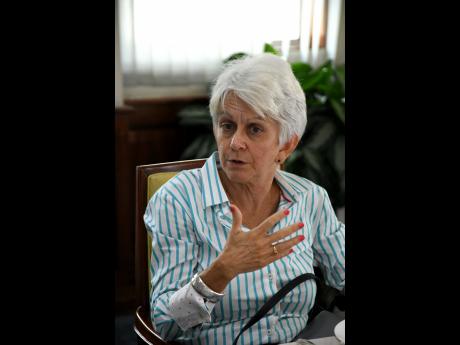Plan of action targets zero violence against children
If the National Plan of Action for an Integrated Response to Children and Violence (NPACV) is implemented, Jamaica should see the number of incidents of violence against children drastically reduced to zero by 2030.
This is according to projected baseline targets outlined in the NPACV, which is being coordinated by a technical working group comprising members from more than 15 government agencies.
Dr Elizabeth Ward, chair of the Violence Prevention Alliance (VPA), made the disclosure while presenting on the NPVAC at the 27th Annual Research Conference Workshop organised by the Faculty of Medical Sciences in collaboration with the VPA at the University of the West Indies, Mona campus, on November 8 to 11.
"Our aim in the plan is to reduce by 15 per cent the number of cases of violence against children reported in targeted communities," she said, adding that the Jamaica Injury Surveillance System in hospitals (JISS) would be able to track some of these figures.
Giving a breakdown of the projections, Dr Ward said this would mean a reduction of cases by three per cent every year over the next 12 years. "We have already signed on to the Sustainable Development Goal that says by 2030 we would have zero cases of child abuse. Wouldn't that be wonderful?" she asked.
Dr Ward said for this to be achieved, the NPACV has recommended the strengthening of policies and legal and regulatory framework to ensure the protection of children from all forms of violence and exploitation.
"These are laws that we are looking at that need to be updated and re-enacted, such as the Child Care and Protection Act. Every year, there is legislation that we are targeting that by the end of five years, these changes are implemented," she explained.
Turning to outcome number two of the plan, she said there has to be improved quality of and access to services for children affected by violence. She said that the target under this outcome is to increase by 20 per cent the number of children accessing quality service.
"Right now, we need to increase the number of case workers for children that need care. We shouldn't have a ratio of one to 30, and, in some of our parishes, one in every 120 cases. We really need to make sure that this is strengthened," she said.
Dr Ward also noted that the Child Guidance Clinics need to be shored up with at least one social worker and psychologist in each parish and that children with post-traumatic stress disorder should be referred and re-integrated into the society.
The NPACV is currently being reviewed and is to be submitted to Cabinet and then tabled in Parliament.

